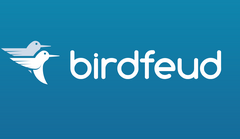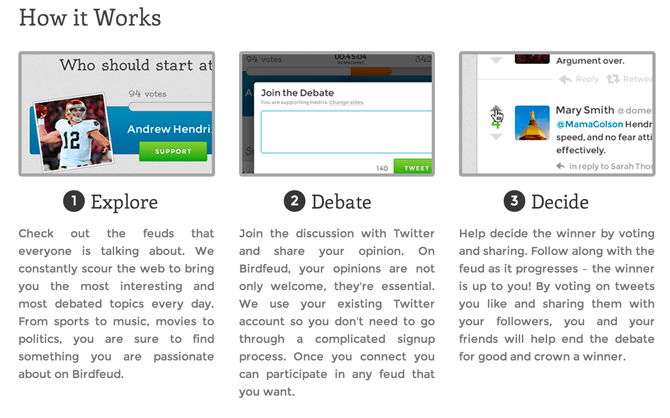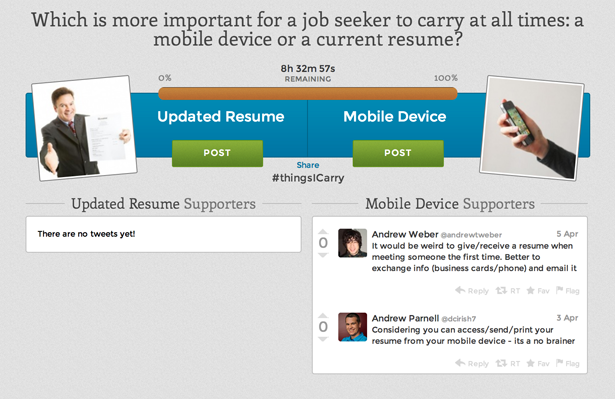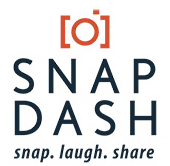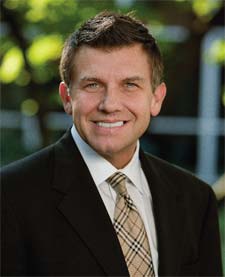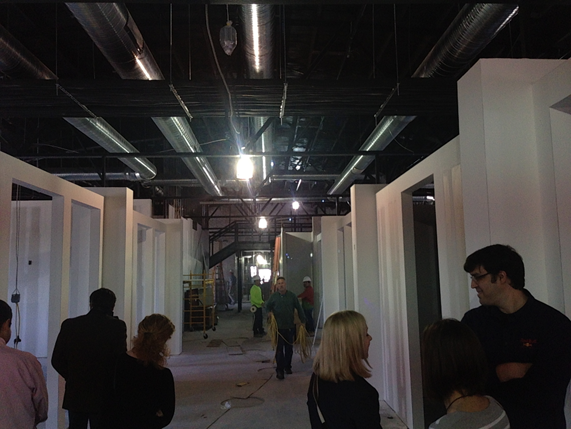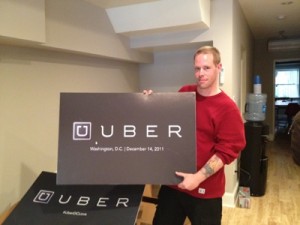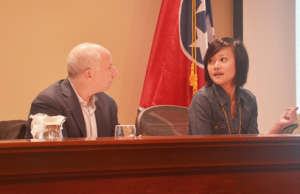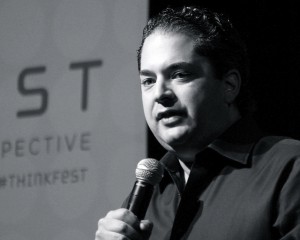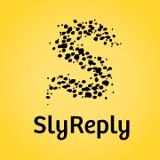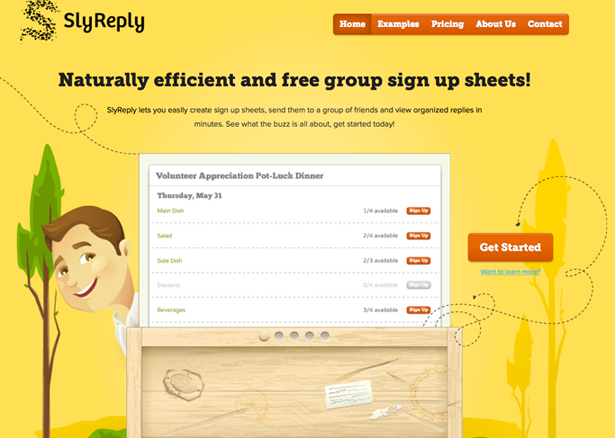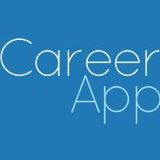 While there are hundreds of startups in the jobs space, Boston startup CareerApp has a totally different approach. They aim to give job seekers the building blocks to success. Building blocks are the foundation to the app itself.
While there are hundreds of startups in the jobs space, Boston startup CareerApp has a totally different approach. They aim to give job seekers the building blocks to success. Building blocks are the foundation to the app itself.
CareerApp is divided into 15 building blocks that are easy to understand, navigate and use to build a user’s CareerApp profile. The 15 blocks are:
Basic Info
Web Presence
Resume
Education
Work Experience
Technical Skills
Personal Skills
Passions & Hobbies
Goals
Awards & Certifications
Interview Questions
Office Preferences
References
Skill Tests
Portfolio
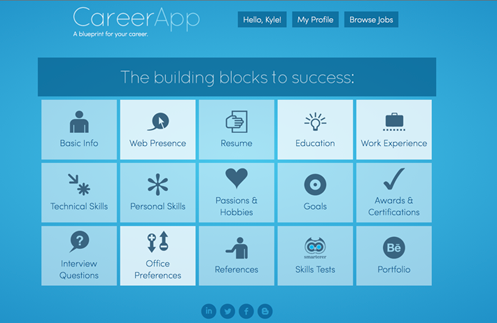 These 15 building blocks give a round picture of the overall candidate. The blocks are also extremely thorough. This allows the user, or jobseeker, to complete a detailed profile and then through one click, send that complete picture to jobs they want to apply for.
These 15 building blocks give a round picture of the overall candidate. The blocks are also extremely thorough. This allows the user, or jobseeker, to complete a detailed profile and then through one click, send that complete picture to jobs they want to apply for.
Phoebe Farber, the founder of CareerApp told nibletz.com in an interview that the next piece they are working on is a tool for career fairs. By working with the producers of job/career fairs, CareerApp can allow on-site candidates to quickly apply to each job or career they are interested in, while they are at the career fair.
This is going to save both job seekers, and recruiters a ton of time. It’s also green-er.
We got a chance to interview Farber, who was named “Ms. Future Business Leader” in 2009. She says she’s still trying to live up to that name.
Check out the interview, below.
What is CareerApp?
CareerApp is the “Common App for jobs” – candidates create a single, strong job application and can apply to multiple positions with one click.
Our focus is to allow new grads to showcase their past achievements and positive traits, in and out of formal work experience, and express their potential. Employers then receive a robust application and also have the opportunity to search the candidate pool to find candidates. We don’t believe that a resume is enough and we’re addressing pain points for candidates and employers.
We’re also just starting to build a Career Fair tool that’s centered around CareerApp and helps students and employers connect before, during, and after the event. So we’re excited about all that’s ahead!
In layman’s terms, how does it work?
You can visit our site, CareerApp.me, register, and complete our well-rounded application. We bet that it’s not like any other job application you’ve filled out! From there you can share the profile that’s generated and/or go apply for jobs at participating companies. We’re also building out a mobile app that should launch in the fall with our Career Fair product.
Who are the founders and what are their backgrounds?
 Phoebe Farber is the Founder & CEO. She grew up in scenic town in “upstate” New York – as true New Yorkers would call it – although the sleepy town of Carmel is about an hour north of NYC. As a child and young adult she was heavily involved in Tae Kwon Do where she earned my 3rd degree black belt and over the course of 8 years learned discipline, respect, and a passion for sales and business.
Phoebe Farber is the Founder & CEO. She grew up in scenic town in “upstate” New York – as true New Yorkers would call it – although the sleepy town of Carmel is about an hour north of NYC. As a child and young adult she was heavily involved in Tae Kwon Do where she earned my 3rd degree black belt and over the course of 8 years learned discipline, respect, and a passion for sales and business.
She was active in the Future Business Leaders of America all through out high school and had the honor of serving as a NY State Officer for two years. She met the most amazing people there and stay involved with the state organization to continue working with officers and helping out in any way she can. FBLA helped set the foundation of her business skills and her crowning achievement was winning Ms. Future Business Leader in 2009- an award she is still trying to live up to.
In late 2011, she got the idea that if there could be a Common App for college that there could be a parallel for entry level jobs, and she started Prospective Plus and the CareerApp. She is currently working on her venture full time as a senior at Northeastern University and will graduate in December 2013.
 Jake Wood is the Co-Founder & CTO, Jake has been writing code since he was six, back in the days when Visual Basic was somewhat popular. Nowadays, most of his work has been in enterprise web development, creating solutions for the finance, insurance, and airline data industries. He is a junior at Northeastern University, and has over 2 years of technical internship experience under his belt, in addition to the first-hand experience of starting a non-profit radio station at his high school, as well as other local business endeavors. When not trying to start something crazy successful, Jake likes rock climbing, hiking, and camping in his home land of Colorado.
Jake Wood is the Co-Founder & CTO, Jake has been writing code since he was six, back in the days when Visual Basic was somewhat popular. Nowadays, most of his work has been in enterprise web development, creating solutions for the finance, insurance, and airline data industries. He is a junior at Northeastern University, and has over 2 years of technical internship experience under his belt, in addition to the first-hand experience of starting a non-profit radio station at his high school, as well as other local business endeavors. When not trying to start something crazy successful, Jake likes rock climbing, hiking, and camping in his home land of Colorado.
Where are you based?
Phoebe and Jake are students at Northeastern University, so the company is based in Boston, MA.
What’s the startup scene/culture like where you’re based?
Boston has an amazing start-up culture. There are over 100 start-up’s coming out of Northeastern alone with a great venture accelerator and the #6 best Entrepreneur’s Club in the country. Boston is a hub for investors, successful start-up’s, networking and learning events, and much more. It’s definitely one of the top places in the country to be when starting a country.
How did you come up with the idea for CareerApp?
I was applying for my second co-op and just spreading my resume around. Even with what I considered a polished resume and the experience I had – I was still getting passed over for interviews for amazing positions.
I had an immensely frustrating week where I had 6 interviews in 4 days with no offers, so I started applying to jobs on career portals and searching through job boards. After a couple hours I was left with a headache and was confused about why we needed to fill out different applications for each job. This issue was solved for college applications when the Common App came about I wanted to see if the same could be done for entry level jobs.
What problem does CareerApp solve?
We are offering a gateway for new graduates and employers to meet for potential employment. Employers today are not getting enough information from a resume and have no way to access that necessary information. We make it easier for qualified candidates to offer more information about themselves and get to that initial interview.
Also, a lot of start-up’s and SMB’s are currently accepting applications via email and CareerApp allows them to organize their available jobs through our platform. Our technology can also multiple applications – like accepting applications for temp agencies and staffing firms, a portal for VC portfolio companies, and a Career Fair tool.
What’s your secret sauce, what makes you different?
We’re a very passionate, persistent, and curious team. We’re always learning, meeting new people in the industry, and looking to see how we can go to market. We’ve also had it drilled into our heads for the past several years what employers are looking for and how we can express our potential to compensate for our lack of formal work experience – so we’re interested in solving this problem.
Why now?
There is also a lot of innovation in this space as the archaric and intensely new solutions compete fiercely. Professional networking, the resumes, interviewing, and more are all growing and changing and now seems like a feasible time to change things up.
Have you faced any challenges specific to being a woman founder?
This is a tough question. Since I’m still in college, I’m not married with kids so I haven’t faced any of those work/life balance issues. I think that I’m still figuring out how to be in certain situations and how to be likable and confident while pursuing my professional goals, which I consider a female founder challenge. We’re also fundraising and I see that few investors are women and as a non-technical female founder I might face an uphill battle. Overall, I haven’t faced any true discrimination and think that my journey is like any other entrepreneurs’ – I’m working on myself as a young professional and my product and learning as I go.
What are some milestones you’ve achieved?
I was offered a scholarship to go on co-op for myself, so that gave me 2 wonderful assets- time and money. I’ve also brought on a great co-founder, so after working on this venture solo for awhile, I now have a great team.
We also launched and got our first students and companies involved in the site – so that’s been great. Seeing that people are interested in what we’re doing is very encouraging.
What’s your next milestone?
Right now we’re looking to be accepted to a summer accelerator – the mentorship, capital, and incubation would be amazing at this point. We’re also fundraising and looking to build our team and advisory board as we focus on biz dev.
Who are some of your mentors and business role models?
I really respect successful entrepreneurs – people who started amazing companies and either exited them, stayed on to grow them, or left to continue on as a serial entrepreneur. People such as Reid Hoffman (Co-Founder of LinkedIn), Jeff Taylor (Founder of Monster), Jeff Bussgang (Co-Founder of UPromise, General Partner at Flybridge Capital Partners), Dave Balter (Founder of BzzAgent, Co-Founder of Smarterer, Co-Founder of Intelligent.ly), Seth Godin, Dharmesh Shah (Founder of Hubspot), Art Papas (Founder of Bullhorn), and more.
I also have several female business role models such as Ivanka Trump (EVP of Dev. and Acquitions at Trump Org.), Sheryl Sandberg (COO of Facebook), and Barbara Corcoran (Founder of The Corcoran Group).
I’ve enjoyed reading these people’s books and blogs, article about and by them, and, in some cases, got to meet them. They’re all so creative, knowledgeable, insightful, intelligent, and innovative and I look up to them as I begin my professional life.
Where can people find out more?
Be sure to visit us at CareerApp.me, follow us @CareerApp,
Check out these great startup interviews at nibletz.com the voice of startups everywhere else.
![]() If you’re looking for a professional service provider the highly acclaimed DC startup Seva Call may be just the right thing for you. Seva Call is a virtual concierge service that links customers by phone to the professional services that they need.
If you’re looking for a professional service provider the highly acclaimed DC startup Seva Call may be just the right thing for you. Seva Call is a virtual concierge service that links customers by phone to the professional services that they need.

